Find Help
More Items From Ergsy search
-

Type 1 Diabetes supporting adults to manage Type 1 diabetes
Relevance: 100%
-
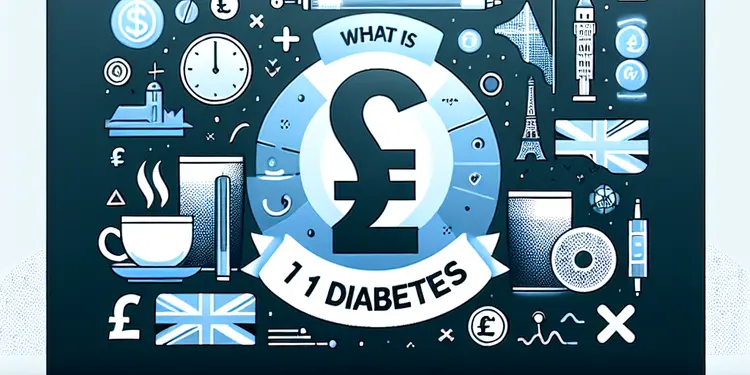
What is type 1 diabetes?
Relevance: 99%
-

Is Type 2 Diabetes hereditary?
Relevance: 99%
-
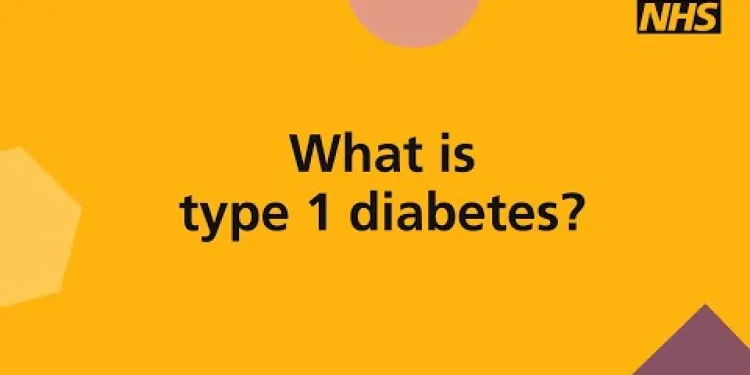
What is type 1 diabetes?
Relevance: 98%
-
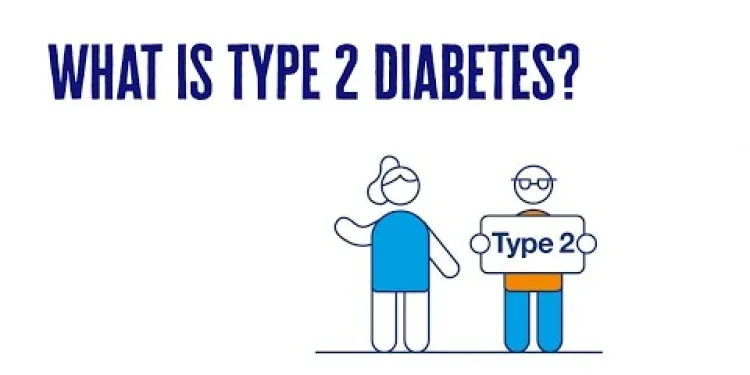
What Is Type 2 Diabetes? | 2 Minute Guide | Diabetes UK
Relevance: 95%
-

What is the difference between type 1 and type 2 diabetes?
Relevance: 95%
-

Is Ozempic suitable for type 1 diabetes?
Relevance: 94%
-

Is there a genetic predisposition to type 1 diabetes?
Relevance: 94%
-

What causes Type 2 Diabetes?
Relevance: 93%
-

Can Type 2 Diabetes go away?
Relevance: 93%
-

Can Type 2 Diabetes be prevented?
Relevance: 93%
-

What are the symptoms of Type 2 Diabetes?
Relevance: 92%
-

How is Type 2 Diabetes diagnosed?
Relevance: 92%
-
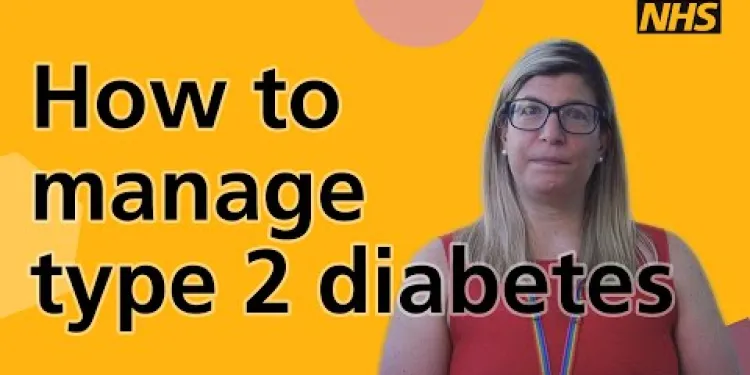
How to manage type 2 diabetes
Relevance: 92%
-

Can Mounjaro be used in type 1 diabetes?
Relevance: 90%
-

How is Type 2 Diabetes treated?
Relevance: 89%
-

What complications are associated with Type 2 Diabetes?
Relevance: 88%
-
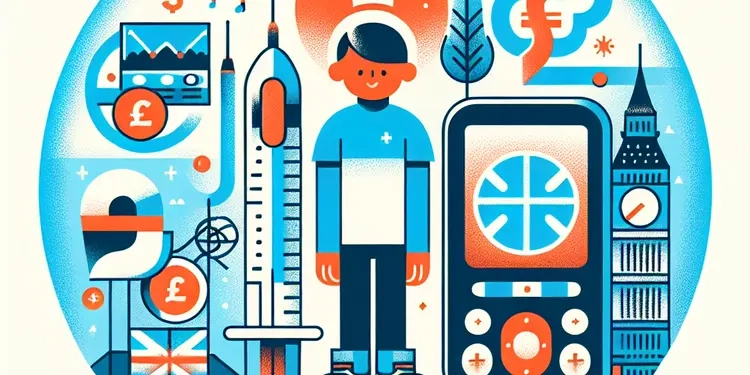
Should I screen my child for type 1 diabetes?
Relevance: 88%
-

What is the role of insulin in Type 2 Diabetes?
Relevance: 88%
-
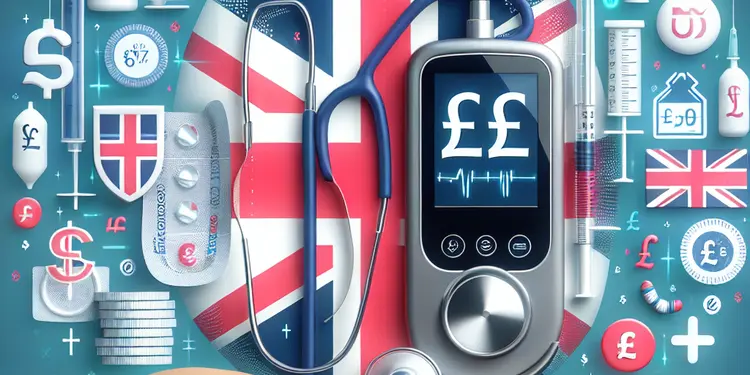
What are the limitations of type 1 diabetes screening?
Relevance: 88%
-

Can stress affect my Type 2 Diabetes?
Relevance: 87%
-
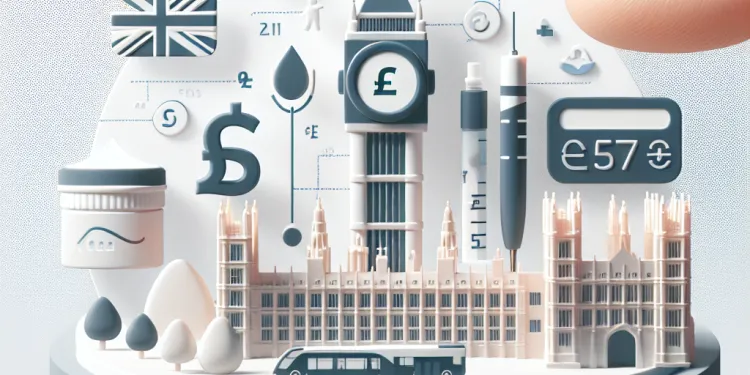
Is Wegovy used for type 2 diabetes management?
Relevance: 86%
-
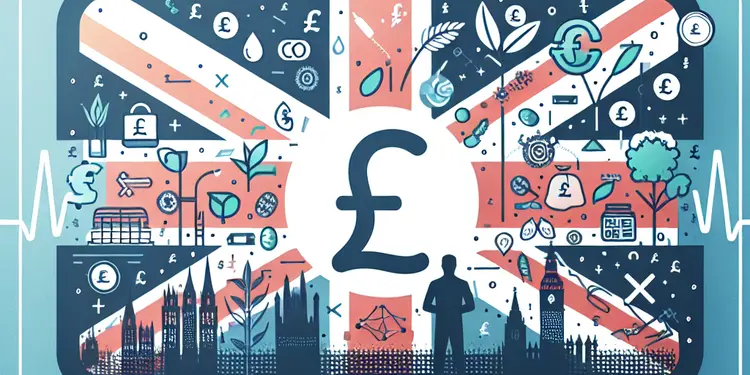
Can environmental factors contribute to type 1 diabetes?
Relevance: 85%
-
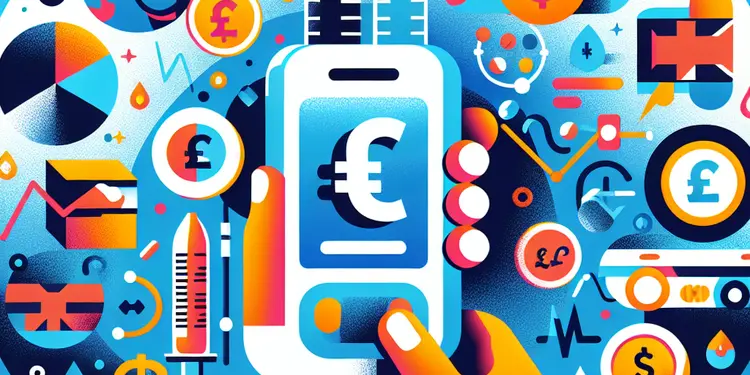
What does screening for type 1 diabetes involve?
Relevance: 85%
-
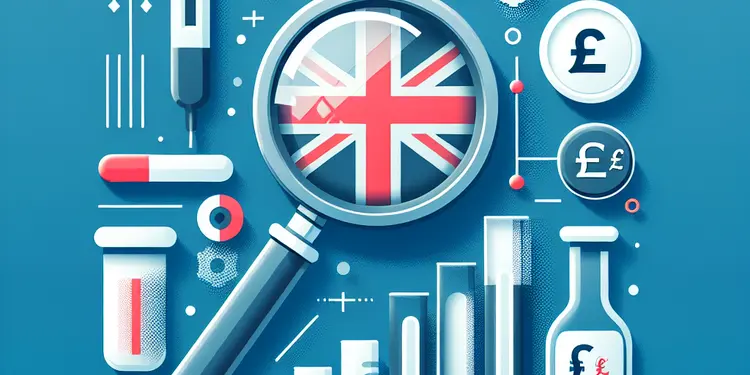
How accurate are the tests for predicting type 1 diabetes?
Relevance: 85%
-
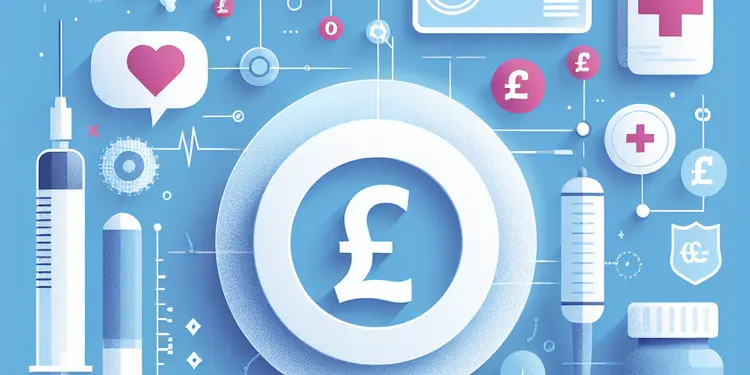
Are there any clinical trials for preventing type 1 diabetes?
Relevance: 84%
-

Does insurance cover type 1 diabetes screening?
Relevance: 84%
-
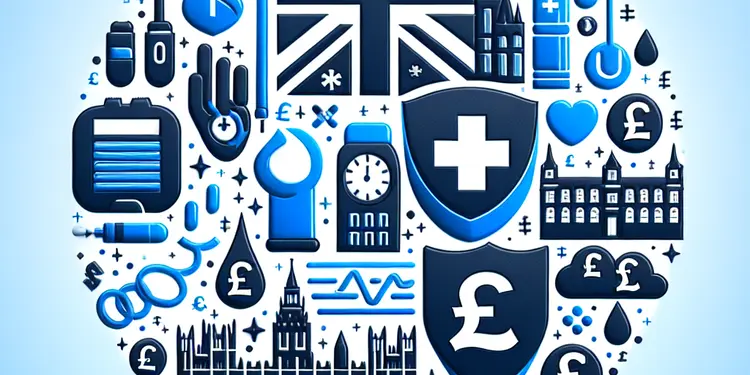
What are the benefits of early detection of type 1 diabetes?
Relevance: 82%
-
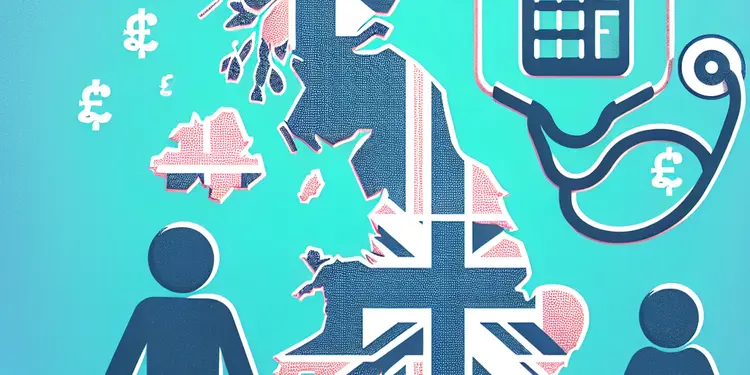
Where can I have my child screened for type 1 diabetes?
Relevance: 82%
-
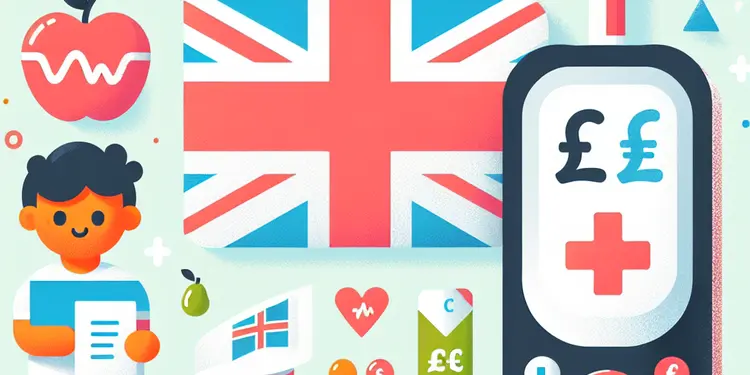
At what age should my child be screened for type 1 diabetes?
Relevance: 82%
-

Where can I find support for managing Type 2 Diabetes in the UK?
Relevance: 82%
-
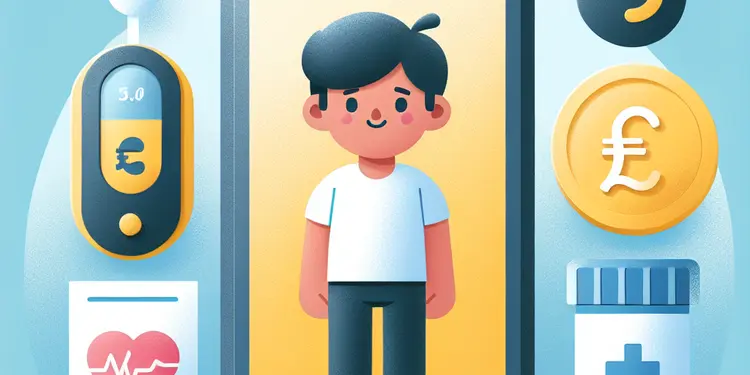
Why should I consider screening my child for type 1 diabetes?
Relevance: 81%
-

Are there any symptoms of type 1 diabetes I should watch for in my child?
Relevance: 81%
-
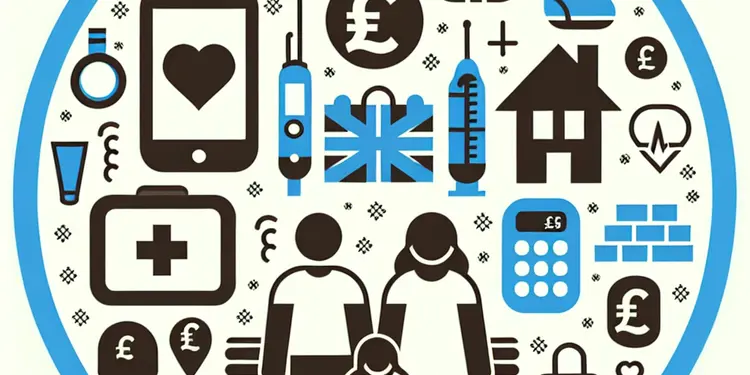
What support is available for families dealing with type 1 diabetes?
Relevance: 81%
-

NHS Diabetes Prevention Programme; Preventing Type 2 and improving outcomes for people with diabetes
Relevance: 80%
-
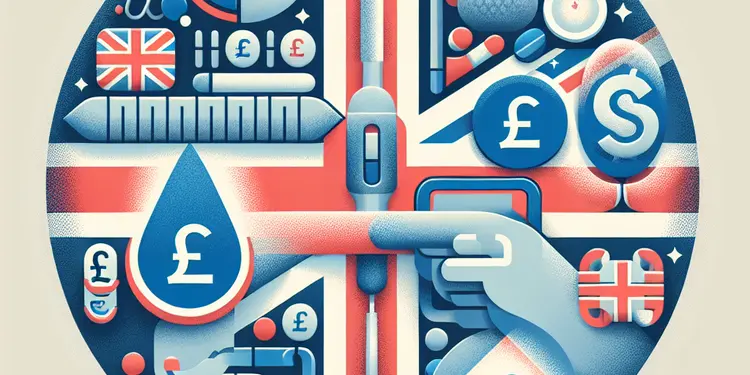
Should siblings of a child with type 1 diabetes also be screened?
Relevance: 80%
-
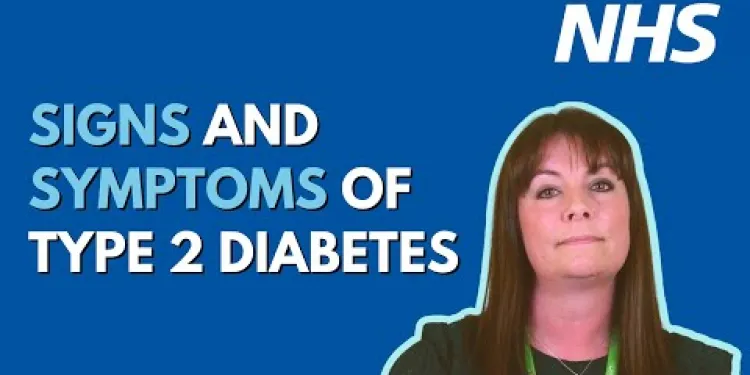
Type 2 diabetes - common signs and symptoms UHL NHS Trust
Relevance: 78%
-
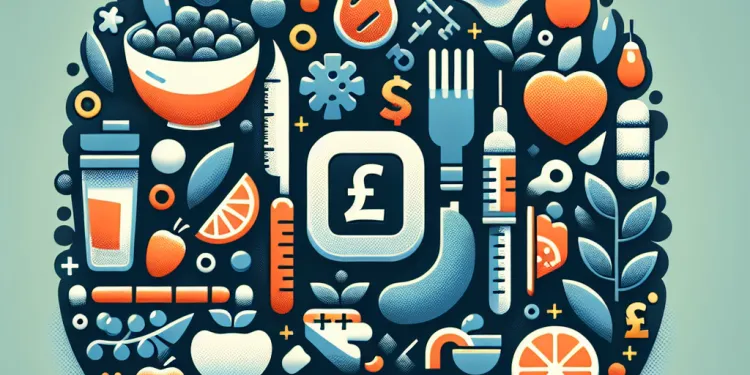
What can I eat if I have Type 2 Diabetes?
Relevance: 76%
-

What lifestyle changes can lower my child's risk of type 1 diabetes?
Relevance: 76%
-
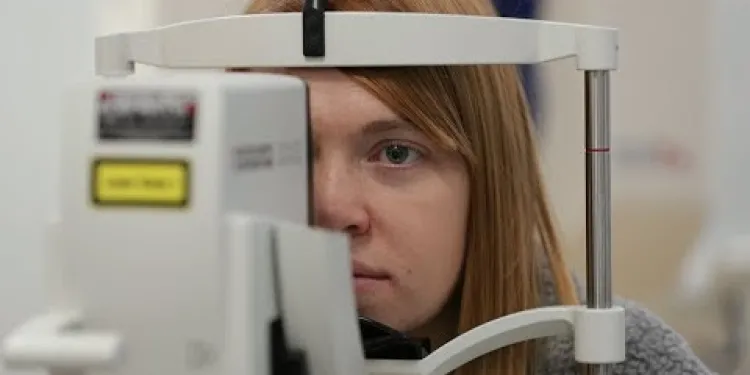
Patient voices in type one diabetes - I would have done things differently.
Relevance: 73%
How to Manage Type 2 Diabetes
Understanding Type 2 Diabetes
Type 2 diabetes is a chronic condition that affects millions of people in the United Kingdom. It occurs when the body becomes resistant to insulin or the pancreas is unable to produce enough insulin, leading to elevated blood sugar levels. Managing this condition effectively is crucial to prevent complications such as heart disease, nerve damage, and kidney problems.
Healthy Eating
A balanced diet plays a critical role in managing type 2 diabetes. Aim to consume a variety of foods that include vegetables, fruits, whole grains, lean proteins, and healthy fats. Limit intake of saturated fats, refined sugars, and processed foods. Carbohydrate counting and portion control can help stabilize blood sugar levels. Consulting with a registered dietitian or a diabetes educator in the UK can provide personalized dietary advice.
Regular Physical Activity
Engaging in regular physical activity can help improve insulin sensitivity and lower blood sugar levels. Aim for at least 150 minutes of moderate-intensity exercise, such as brisk walking or cycling, per week. Strength training exercises are also beneficial. Always consult with your healthcare provider before starting any new exercise regimen to ensure it’s appropriate for your condition.
Monitoring Blood Sugar Levels
Regular monitoring of blood sugar levels is essential for managing type 2 diabetes. Utilize glucose meters or continuous glucose monitoring systems as recommended by your healthcare provider. Keeping a log of your readings can help identify patterns and adjust your management plan as needed. The NHS provides guidelines and resources to help you with blood sugar monitoring.
Medication and Insulin Therapy
Depending on the severity of your diabetes, medication or insulin therapy may be necessary. Common medications include metformin, sulphonylureas, and SGLT2 inhibitors. If insulin is required, your healthcare provider will guide you on how to administer it properly. Always follow your prescribed treatment plan and attend regular check-ups to manage your condition effectively.
Stress Management
Stress can negatively impact blood sugar levels. Techniques such as mindfulness, meditation, and deep-breathing exercises can help manage stress. Incorporating hobbies, social activities, and adequate sleep are also beneficial. The NHS offers mental health resources that can support you in managing stress and overall well-being.
Regular Healthcare Appointments
Regular check-ups with your healthcare provider are essential for effective diabetes management. These appointments allow for monitoring of your blood sugar levels, adjusting medications if necessary, and screening for any complications. The NHS provides comprehensive care plans for those living with diabetes, ensuring you receive the support and guidance needed to manage your condition.
By following these guidelines and working closely with your healthcare team, you can effectively manage type 2 diabetes and lead a healthy, fulfilling life.
How to Take Care of Type 2 Diabetes
What is Type 2 Diabetes?
Type 2 diabetes is a long-lasting health problem. Lots of people in the UK have it. It happens when your body doesn't use insulin well or doesn't make enough insulin. This makes your blood sugar too high. Keeping your diabetes under control is very important. It can stop other health problems like heart disease and kidney issues from starting.
Eating Healthy
Eating the right foods is important for taking care of type 2 diabetes. Try to eat different foods like veggies, fruits, whole grains, lean meats, and good fats. Don't eat too many fatty, sugary, or processed foods. Counting carbs and eating the right amounts can help keep your blood sugar steady. In the UK, a dietitian or diabetes teacher can help you plan what to eat.
Exercise Regularly
Moving your body helps it use insulin better and keeps your blood sugar lower. Try to do at least 150 minutes of exercise every week. You can do things like fast walking or riding a bike. Doing exercises to make you stronger is good, too. Talk to your doctor before starting new exercises to make sure they are safe for you.
Checking Blood Sugar Levels
Checking your blood sugar levels often is key for managing diabetes. Use a blood sugar meter or another device as your doctor shows you. Write down your numbers. This helps you see patterns and change things if needed. The NHS has tips and tools for checking your blood sugar.
Medicines and Insulin
If your diabetes is bad, you might need medicine or insulin. Common medicines are metformin and sulphonylureas. If you need insulin, your doctor will show you how to use it. Always follow what your doctor tells you and go to your check-ups to take care of your diabetes well.
Handling Stress
Stress can make blood sugar go up. Doing things like mindfulness, meditation, and deep breathing can lower stress. Having fun hobbies, spending time with friends, and getting good sleep help too. The NHS has mental health resources to help you deal with stress and feel better.
Regular Doctor Visits
Seeing your doctor often is important for managing diabetes. They help check your blood sugar, change medicines if needed, and check for other health problems. The NHS has care plans to support you and help you manage your diabetes.
By following these steps and working with your healthcare team, you can manage type 2 diabetes well and live a healthy life.
Frequently Asked Questions
What is type 2 diabetes?
Type 2 diabetes is a chronic condition that affects the way your body processes blood sugar (glucose). It occurs when the body becomes resistant to insulin or when the pancreas cannot make enough insulin.
What are the common symptoms of type 2 diabetes?
Common symptoms include increased thirst, frequent urination, extreme hunger, unexplained weight loss, fatigue, blurred vision, slow-healing sores, and frequent infections.
How is type 2 diabetes diagnosed?
Type 2 diabetes is diagnosed through blood tests that measure your blood glucose levels. The most common tests are the fasting plasma glucose test, the HbA1c test, and the oral glucose tolerance test.
Can type 2 diabetes be cured?
There is no cure for type 2 diabetes, but the condition can be managed through lifestyle changes, medications, and regular monitoring of blood glucose levels.
What lifestyle changes are recommended to manage type 2 diabetes?
Recommended lifestyle changes include eating a balanced diet, maintaining a healthy weight, engaging in regular physical activity, quitting smoking, and reducing alcohol intake.
What type of diet is best for managing type 2 diabetes?
A diet rich in fruits, vegetables, whole grains, and lean proteins while low in saturated fats, refined sugars, and processed foods can help manage blood glucose levels effectively.
How often should I check my blood glucose levels?
The frequency of blood glucose monitoring depends on your individual treatment plan, but it is generally recommended to check it several times a day, especially if you are on insulin.
What types of medication are commonly prescribed for type 2 diabetes?
Common medications include metformin, sulfonylureas, DPP-4 inhibitors, GLP-1 receptor agonists, SGLT2 inhibitors, and insulin therapy.
What are the potential complications of unmanaged type 2 diabetes?
Potential complications include cardiovascular disease, neuropathy, nephropathy, retinopathy, foot problems, and increased risk of infections.
Can exercise help manage type 2 diabetes?
Yes, regular physical activity can help lower blood glucose levels, improve insulin sensitivity, and assist with weight management, which are all crucial in managing type 2 diabetes.
How does stress affect type 2 diabetes management?
Stress can affect blood glucose levels by causing them to rise due to the release of stress hormones. Managing stress through relaxation techniques, exercise, and proper sleep is important.
Is it necessary to see a specialist for type 2 diabetes care?
While your GP can manage your diabetes care, you may need to see specialists such as endocrinologists, dietitians, and diabetes educators for more comprehensive management.
What role does weight management play in managing type 2 diabetes?
Maintaining a healthy weight can improve insulin sensitivity, reduce blood glucose levels, and decrease the risk of complications associated with type 2 diabetes.
Are there any support groups for people with type 2 diabetes in the UK?
Yes, several organisations such as Diabetes UK offer support groups, resources, and forums where individuals with type 2 diabetes can seek advice and connect with others.
Will I need to take insulin if I have type 2 diabetes?
Not everyone with type 2 diabetes will need insulin. It depends on how well your blood glucose levels are managed with lifestyle changes and oral medications. Your doctor will determine if insulin is necessary.
What is type 2 diabetes?
Type 2 diabetes is a health problem. It means your body has trouble using sugar for energy.
Your body needs help to use the sugar from food. This makes your blood sugar too high.
You can ask a doctor or nurse for help. They can tell you ways to feel better.
You can use tools like pictures or talk with someone who understands to learn more.
Type 2 diabetes is a long-term illness. It changes how your body uses sugar in your blood. It happens when your body does not use insulin well or when the pancreas does not make enough insulin.
Here are some ways to understand better:
- Read slowly and take your time.
- Use a dictionary if you find hard words.
- Ask someone to explain things that are tricky.
- Use drawings or pictures to help understand.
- Repeat the information more than once.
What are the usual signs of type 2 diabetes?
Type 2 diabetes is an illness. It can make your blood sugar too high. Here are some signs to look out for:
- Feeling very thirsty
- Needing to pee a lot, especially at night
- Feeling very tired
- Losing weight without trying
- Blurry eyesight
- Cuts and bruises that heal slowly
- Feeling tingling or numbness in hands or feet
If you notice these signs, tell a doctor or nurse.
It can help to write down how you feel each day or use tools like pictures or apps to keep track of your signs.
Here are some common signs:
- You feel very thirsty a lot.
- You need to pee often.
- You feel very hungry, even after you eat.
- You lose weight without trying.
- You feel very tired.
- You can't see clearly.
- Cuts or sores take a long time to heal.
- You get sick or have infections often.
To help understand these signs, you could use picture cards or ask someone to read with you.
How do doctors find out if you have type 2 diabetes?
Doctors use special blood tests to see if you have type 2 diabetes.
These tests check the sugar levels in your blood.
The tests they often use are:
- A test when you haven't eaten for a while (fasting plasma glucose test).
- A test that shows your average blood sugar over a few months (HbA1c test).
- A test where you drink something sweet and then your blood is tested (oral glucose tolerance test).
If you find reading hard, you can use tools like audiobooks or read aloud software to help you understand. Don't be afraid to ask for help if you need it!
Can We Fix Type 2 Diabetes?
People have an illness called type 2 diabetes. Can we make it go away? This is a big question.
Some people with type 2 diabetes can make it better. They can do this by eating healthy food and taking their medicine. They might also need to exercise.
It's important to visit a doctor. They can help make a good plan to feel better. People can use reminders to take their medicine on time too.
While some people feel better, they still need to be careful. They should keep seeing their doctor and follow advice to stay healthy.
There are tools to help, like a note app on a phone or a calendar. These can help remember doctor visits and when to take medicine.
Every person is different, so what works for one person might not work for another. It’s important to find what works best with the help of a doctor.
You can't make type 2 diabetes go away, but you can take care of it. You can do this by changing some things in your life, taking medicine, and checking your blood sugar often.
What can you do to help manage type 2 diabetes?
Here are some simple things you can do to help manage type 2 diabetes:
- Eat healthy food: Choose fruits, vegetables, whole grains, and lean proteins. Try to avoid sugary snacks and drinks.
- Be active: Try to move your body every day. You can take a walk, ride a bike, or play a fun game.
- Check your blood sugar: Ask for help from an adult to check your blood sugar levels. It helps you know how you are doing.
- Take your medicine: If you have medicine, remember to take it as your doctor or nurse told you.
- Talk to your doctor: Go to your doctor's appointments and ask questions if you don't understand something.
Tools and help you can use:
- Food diary: Write down what you eat to see if you can make better choices.
- Activity chart: Keep track of your activities and see how often you move each day.
- Support group: Join a group or talk to friends and family about how you feel.
Here are some things you can do to stay healthy:
1. Eat different kinds of healthy food.
2. Try to stay at a healthy weight.
3. Exercise or play sports often.
4. Stop smoking.
5. Drink less alcohol.
Using apps or charts can help you keep track of what you eat and when you exercise. Friends or groups can make it fun to stay healthy together.
What is the best food to eat if you have type 2 diabetes?
If you have type 2 diabetes, eating healthy food can help you feel better.
Here are some tips to help you:
- Eat lots of fruits and vegetables. They are good for you.
- Choose whole grains, like brown rice or whole-wheat bread.
- Eat lean meats, like chicken or fish.
- Try to eat less sugar and sweets.
- Watch how much you eat. Don't eat too much at one time.
Tools that can help:
- Use a plate with sections to help with portion sizes.
- Find recipes that show how to make healthy meals.
- Ask a grown-up for help if you are unsure what to eat.
Eating lots of fruits, vegetables, whole grains, and lean proteins like chicken or fish is good for your health. Try to eat less food with bad fats, sugar, and those that come from a factory.
How many times should I check my blood sugar?
Check your blood sugar every day. Your doctor can tell you how many times to check it. Some people check in the morning and at night. Others might check before and after meals. Try using a chart or app to help you remember when to check. Ask someone to help if you are not sure.
How often you check your blood sugar depends on your treatment plan. Usually, it is good to check it a few times every day, especially if you take insulin.
What medicines do doctors often give for type 2 diabetes?
People with type 2 diabetes might take special medicines to help them feel better. Here are some common ones:
- Metformin: This helps control sugar levels in the blood.
- Sulfonylureas: These help the body make more insulin.
- DPP-4 inhibitors: They help lower blood sugar without causing too much insulin.
- GLP-1 receptor agonists: This helps the body make insulin when needed.
- SGLT2 inhibitors: They help remove extra sugar through the urine.
- Insulin: Some people need to take insulin shots to keep their sugar levels normal.
If you find reading hard, you can ask someone to read for you. You can also use simple read-aloud tools on computers to hear this information.
There are some common medicines people might take if they have diabetes. These include:
- Metformin
- Sulfonylureas
- DPP-4 inhibitors
- GLP-1 receptor agonists
- SGLT2 inhibitors
- Insulin therapy
If you find it hard to remember the names, you can use a special app or make a list to help. You can also ask someone to go over it with you. If there are any tricky words, ask a doctor or a helper to explain them.
What can happen if type 2 diabetes is not taken care of?
Type 2 diabetes is when your body has trouble using sugar in your blood. If it's not taken care of, it can cause problems like:
- Feeling very tired.
- Having cuts that heal slowly.
- Problems with your eyes, which could make it hard to see.
- Trouble with your feet, like sores or infections.
- Heart problems, which could be very serious.
- Kidney problems, which might need special care.
It’s important to get help from a doctor. They can tell you how to keep healthy. You can also use simple tools, like a calendar, to remember when to take your medicine or see your doctor.
There can be some health problems like heart disease, nerve damage, kidney damage, eye problems, foot problems, and getting infections more easily.
Can exercise help with type 2 diabetes?
Exercise means moving your body to be healthy. It can help people with type 2 diabetes feel better.
When you move, your body can use sugar in a good way. This helps keep your sugar levels normal.
Try to do a little bit of exercise every day. Walking or playing outside are good ways to start.
If you need help, you can:
- Ask a grown-up to do exercises with you.
- Watch an exercise video for kids.
Yes, doing exercise can help make blood sugar lower. It also helps the body use insulin better and can help you stay at a healthy weight. These are all important for taking care of type 2 diabetes.
How does stress affect taking care of type 2 diabetes?
Feeling stressed can make it harder to look after type 2 diabetes. When you are stressed, your body makes more of some hormones. This can make your blood sugar levels go up.
Here are some ways to manage stress:
- Take deep breaths to help you relax.
- Talk to someone about your feelings, like a friend or family member.
- Exercise, like going for a walk, to help you feel better.
- Focus on one thing at a time to make tasks easier.
Getting help can make managing diabetes easier. A doctor or nurse can help you find ways to feel less stressed.
Stress can make your blood sugar go up. This happens because your body releases special chemicals when you're stressed. It's important to manage stress. You can help yourself by doing things like relaxing, exercising, and getting good sleep.
Do you need to see a special doctor for type 2 diabetes care?
If you have type 2 diabetes, it can be helpful to see a special doctor. This doctor knows a lot about diabetes. They can help you take care of yourself.
They might help you with:
- Eating healthy food
- Taking your medicine
- Checking your blood sugar
You can also use tools like reminder apps to remember your medicine. Friends and family can help too!
Your regular doctor can help you with diabetes, but sometimes you might need to see other experts. These experts include doctors who know a lot about hormones, people who help with food choices, and teachers who explain more about diabetes.
How does keeping a healthy weight help with type 2 diabetes?
Keeping a healthy weight is important if you have type 2 diabetes. It can make your blood sugar levels better. This can make you feel good and help your body.
Here are some tips to help with weight management:
- Eat healthy foods like fruits and vegetables.
- Exercise often. Try walking, dancing, or playing outside.
- Drink water instead of sugary drinks.
Ask a doctor or a healthcare worker for help. They can give you good advice.
Keeping your weight healthy can help your body use insulin better. It can also help lower sugar levels in your blood and make it less likely to have problems if you have type 2 diabetes.
Are there groups that help people with type 2 diabetes in the UK?
Yes, there are groups that help people with type 2 diabetes. These groups are called support groups. They meet to talk, share stories, and help each other.
If you want to find a support group, you can:
- Ask your doctor.
- Visit a local health center.
- Look online for diabetes support groups in your area.
These groups can help with tips and support to manage diabetes better.
Yes, there are groups that can help people with type 2 diabetes. One of these groups is Diabetes UK. They have support groups, resources, and online places where people can talk and get advice.
Will I need to take insulin if I have type 2 diabetes?
If you have type 2 diabetes, you might need medicine to help. Some people take insulin shots, but not everyone needs them. You should talk to your doctor about what is best for you. Eating healthy food and exercising can also help manage diabetes.
It can be helpful to have someone with you when you talk to your doctor. They can help you remember what the doctor says. You can also ask your doctor to use simple words that are easier to understand.
Not everyone with type 2 diabetes needs insulin. It depends on how well you can control your blood sugar with healthy changes and medicine you take by mouth. Your doctor will decide if you need insulin.
Useful Links
This website offers general information and is not a substitute for professional advice.
Always seek guidance from qualified professionals.
If you have any medical concerns or need urgent help, contact a healthcare professional or emergency services immediately.
Some of this content was generated with AI assistance. We’ve done our best to keep it accurate, helpful, and human-friendly.
- Ergsy carfully checks the information in the videos we provide here.
- Videos shown by Youtube after a video has completed, have NOT been reviewed by ERGSY.
- To view, click the arrow in centre of video.
- Most of the videos you find here will have subtitles and/or closed captions available.
- You may need to turn these on, and choose your preferred language.
- Go to the video you'd like to watch.
- If closed captions (CC) are available, settings will be visible on the bottom right of the video player.
- To turn on Captions, click settings .
- To turn off Captions, click settings again.
More Items From Ergsy search
-

Type 1 Diabetes supporting adults to manage Type 1 diabetes
Relevance: 100%
-

What is type 1 diabetes?
Relevance: 99%
-

Is Type 2 Diabetes hereditary?
Relevance: 99%
-

What is type 1 diabetes?
Relevance: 98%
-

What Is Type 2 Diabetes? | 2 Minute Guide | Diabetes UK
Relevance: 95%
-

What is the difference between type 1 and type 2 diabetes?
Relevance: 95%
-

Is Ozempic suitable for type 1 diabetes?
Relevance: 94%
-

Is there a genetic predisposition to type 1 diabetes?
Relevance: 94%
-

What causes Type 2 Diabetes?
Relevance: 93%
-

Can Type 2 Diabetes go away?
Relevance: 93%
-

Can Type 2 Diabetes be prevented?
Relevance: 93%
-

What are the symptoms of Type 2 Diabetes?
Relevance: 92%
-

How is Type 2 Diabetes diagnosed?
Relevance: 92%
-

How to manage type 2 diabetes
Relevance: 92%
-

Can Mounjaro be used in type 1 diabetes?
Relevance: 90%
-

How is Type 2 Diabetes treated?
Relevance: 89%
-

What complications are associated with Type 2 Diabetes?
Relevance: 88%
-

Should I screen my child for type 1 diabetes?
Relevance: 88%
-

What is the role of insulin in Type 2 Diabetes?
Relevance: 88%
-

What are the limitations of type 1 diabetes screening?
Relevance: 88%
-

Can stress affect my Type 2 Diabetes?
Relevance: 87%
-

Is Wegovy used for type 2 diabetes management?
Relevance: 86%
-

Can environmental factors contribute to type 1 diabetes?
Relevance: 85%
-

What does screening for type 1 diabetes involve?
Relevance: 85%
-

How accurate are the tests for predicting type 1 diabetes?
Relevance: 85%
-

Are there any clinical trials for preventing type 1 diabetes?
Relevance: 84%
-

Does insurance cover type 1 diabetes screening?
Relevance: 84%
-

What are the benefits of early detection of type 1 diabetes?
Relevance: 82%
-

Where can I have my child screened for type 1 diabetes?
Relevance: 82%
-

At what age should my child be screened for type 1 diabetes?
Relevance: 82%
-

Where can I find support for managing Type 2 Diabetes in the UK?
Relevance: 82%
-

Why should I consider screening my child for type 1 diabetes?
Relevance: 81%
-

Are there any symptoms of type 1 diabetes I should watch for in my child?
Relevance: 81%
-

What support is available for families dealing with type 1 diabetes?
Relevance: 81%
-

NHS Diabetes Prevention Programme; Preventing Type 2 and improving outcomes for people with diabetes
Relevance: 80%
-

Should siblings of a child with type 1 diabetes also be screened?
Relevance: 80%
-

Type 2 diabetes - common signs and symptoms UHL NHS Trust
Relevance: 78%
-

What can I eat if I have Type 2 Diabetes?
Relevance: 76%
-

What lifestyle changes can lower my child's risk of type 1 diabetes?
Relevance: 76%
-

Patient voices in type one diabetes - I would have done things differently.
Relevance: 73%


